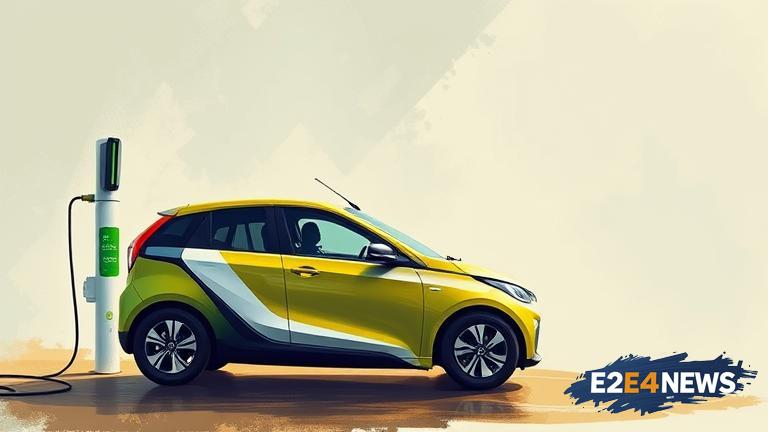The Indian government has announced a comprehensive plan to promote the adoption of electric vehicles (EVs) in the country. The plan includes a range of incentives and initiatives to encourage the use of EVs, including tax exemptions, subsidies, and investment in charging infrastructure. The government aims to have at least 30% of new vehicle sales be electric by 2030. To achieve this goal, the government will provide subsidies to manufacturers of EVs and components, as well as to buyers of EVs. The subsidies will be in the form of tax exemptions and discounts on the purchase price of EVs. Additionally, the government will invest in the development of charging infrastructure, including the installation of charging stations along highways and in cities. The plan also includes measures to promote the use of EVs in public transportation, such as buses and taxis. The government will provide subsidies to state governments to purchase EVs for public transportation. The plan also includes initiatives to promote the use of EVs in the private sector, such as providing subsidies to companies that purchase EVs for their fleets. The government will also provide funding for research and development of new EV technologies, including battery technology and charging systems. The plan is expected to create new job opportunities in the EV sector, including in manufacturing, sales, and maintenance. The government has also announced plans to establish a network of EV charging stations along highways and in cities. The charging stations will be equipped with fast-charging technology, allowing drivers to charge their vehicles quickly and efficiently. The government has also announced plans to promote the use of EVs in rural areas, where access to charging infrastructure may be limited. To address this challenge, the government will provide subsidies to companies that install charging stations in rural areas. The plan also includes measures to promote the use of EVs in the tourism sector, such as providing subsidies to tour operators that purchase EVs for their fleets. The government has also announced plans to establish a system for monitoring and evaluating the effectiveness of the plan. The system will track the number of EVs sold, the number of charging stations installed, and the amount of greenhouse gas emissions reduced. The plan is expected to have a significant impact on the environment, reducing greenhouse gas emissions and improving air quality. The plan is also expected to have a positive impact on the economy, creating new job opportunities and stimulating investment in the EV sector. The government has announced that it will review and update the plan regularly to ensure that it is meeting its goals and to make any necessary adjustments. The plan is a major step forward for India’s EV sector, and is expected to play a key role in the country’s transition to a more sustainable and environmentally-friendly transportation system. The government has also announced plans to collaborate with other countries to share knowledge and best practices in promoting the adoption of EVs. The plan is a significant development for India’s automotive industry, and is expected to have a major impact on the country’s transportation sector. The government has also announced plans to provide training and education programs for workers in the EV sector, to ensure that they have the skills and knowledge needed to work with EVs. The plan is a major step forward for India’s efforts to reduce its greenhouse gas emissions and to promote sustainable development. The government has also announced plans to establish a system for certifying EVs, to ensure that they meet certain safety and performance standards. The plan is expected to have a positive impact on public health, reducing air pollution and improving air quality. The government has also announced plans to promote the use of EVs in the logistics and transportation sector, such as providing subsidies to companies that purchase EVs for their fleets. The plan is a significant development for India’s economy, and is expected to have a major impact on the country’s transportation sector.





